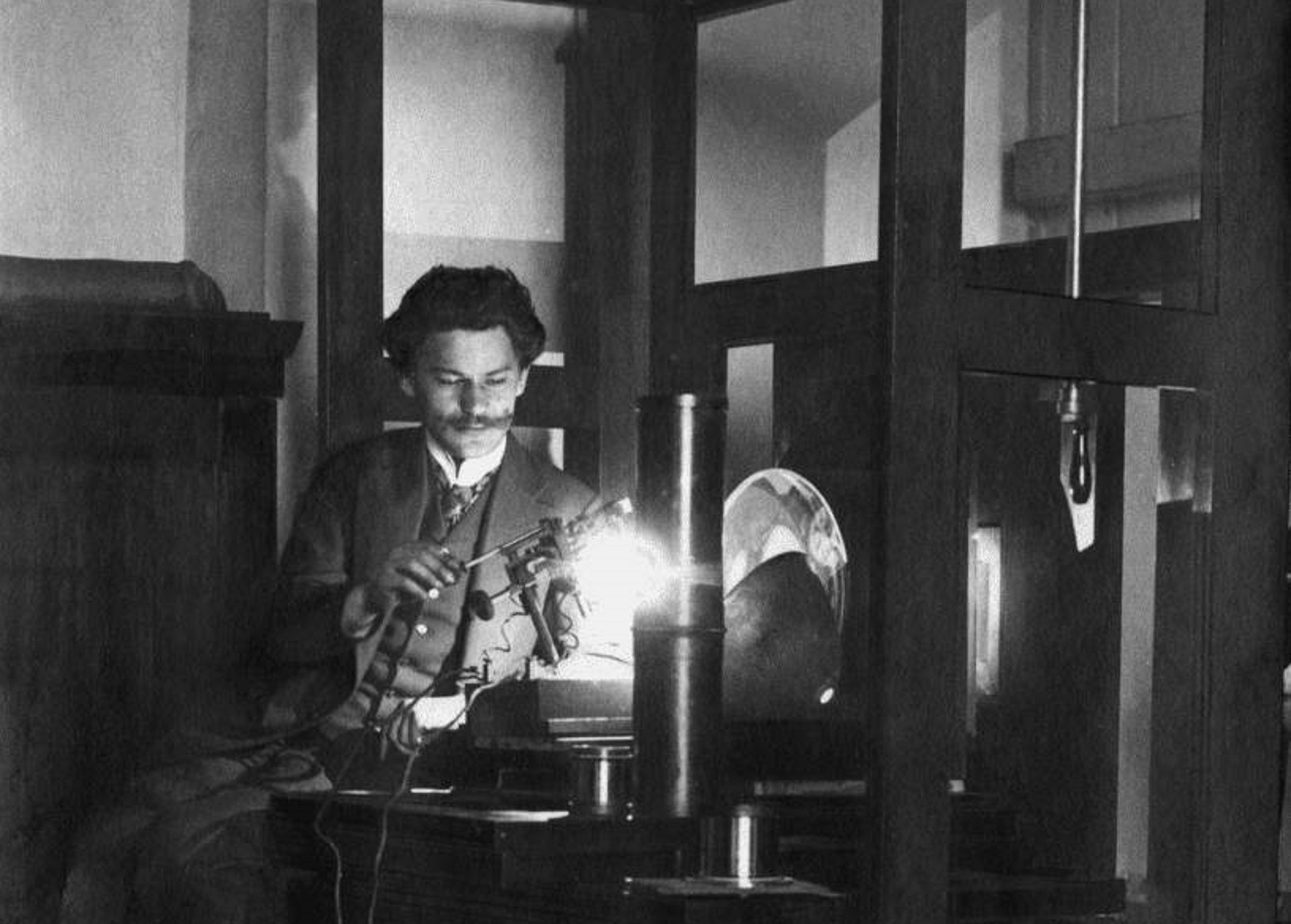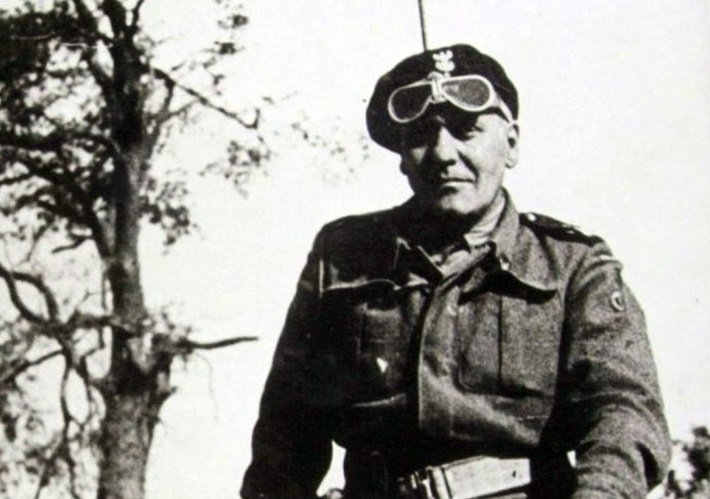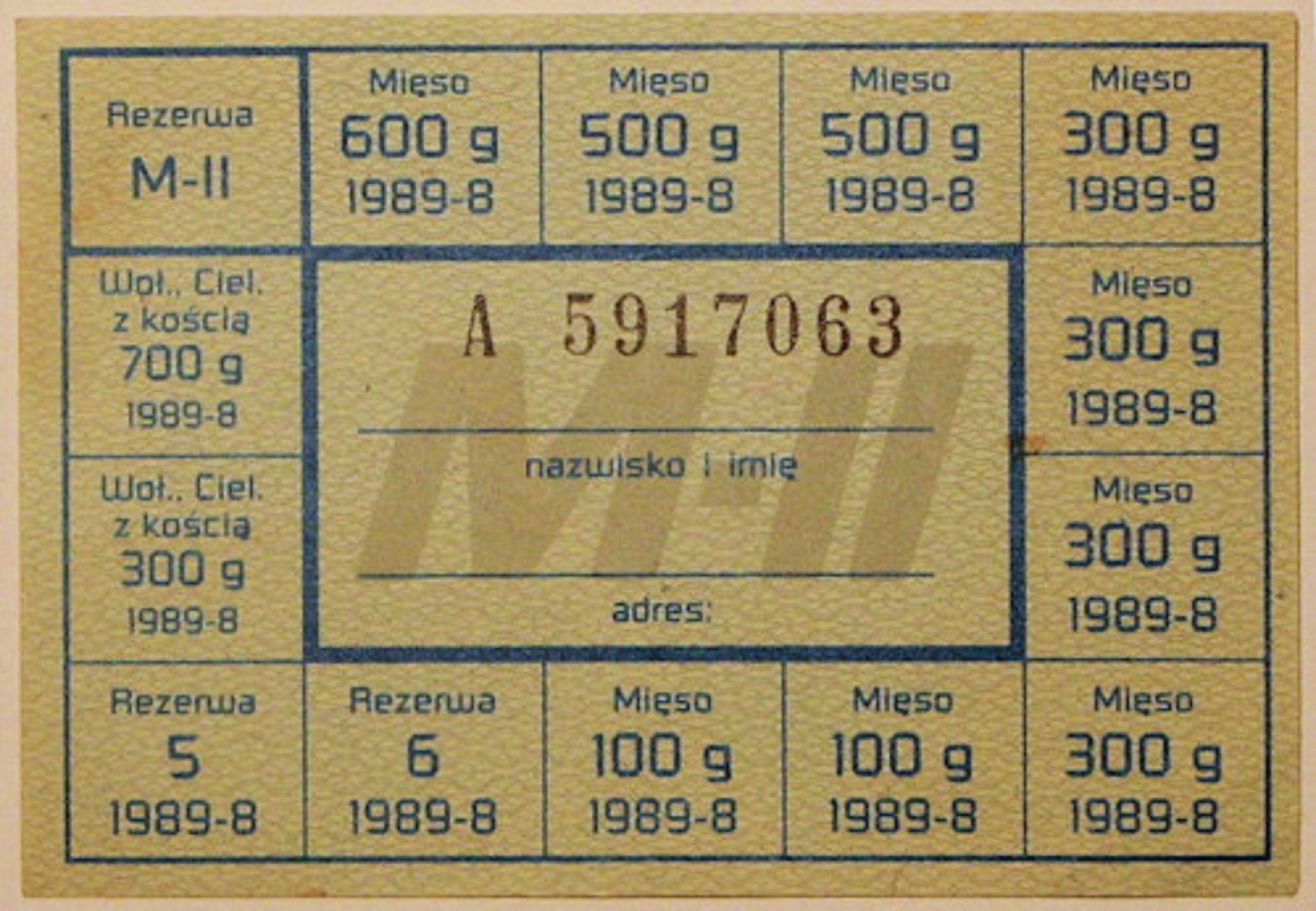The black legend of the ‘god of war’, who died aged just 51, had even fewer supporters in partitioned Poland than in France. Only in the Polish anthem does his name appear: ‘Bonaparte has given us the example of how we should prevail’.
by Wiesław Chełminiak
Was it stomach cancer or poison that killed him? We will likely never know. One thing is certain: Napoleon, before changing from a political corpse into a real corpse, did everything to ensure his immortal fame. In The Memorial of Saint Helena, dictated in exile, and the greatest bestseller of the 19th century, he presented himself as the ‘Messiah of the Revolution’, a sincere democrat, pacifist and, at the same time, the greatest leader in history, whose aim was to unite Europe and make its people happy. The enemies propagated a completely different, bloodthirsty image of the Emperor, but lost the propaganda war. It was obvious that Napoleon was a greater figure than all the pathetic monarchs of his day put together. The poet René de Chateaubriand, a supporter of the Bourbons, lamented: The universe lost its soul when Bonaparte let out his last breath. What the destroyer failed to conquer, his fame conquers for him.
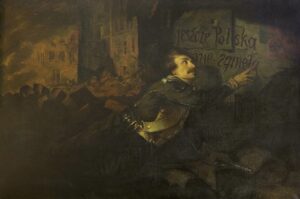
Beloved by the Poles
The black legend of the ‘god of war’, who died aged just 51, had even fewer supporters in partitioned Poland than in France. Only in the Polish anthem does his name appear: ‘Bonaparte has given us the example of how we should prevail’. Poles took part in most of Napoleon’s battles, playing a significant role in the battles of Friedland, Wagram, and Borodino. At Leipzig, Prince Jozef Poniatowski, previously appointed Marshal of France (as the only foreigner), died covering the Emperor’s retreat. Polish units were ranked among the top formations of Napoleon’s army. The effectiveness of the light cavalry regiment of the Emperor’s Guard formed in 1807 meant that the entire French cavalry was equipped with lances, masterfully handled by young noblemen – volunteers from Mazovia.
The Little Corporal’s star began to shine when the Polish-Lithuanian Commonwealth disappeared from the political map of Europe. ‘Although Polish statehood ceased to exist, the three invading powers were unable to destroy the Polish national spirit. Napoleon constantly appealed to these feelings, allowing Poles to believe that, one day, he would bring their country back to life,’ says the author of Bonaparte’s most recent biography, Andrew Roberts. Regardless of the French leader’s intentions, the knockout blows he inflicted on dynasts who epitomised the ancien regime, created a favourable climate for the Polish cause, considered completely dead and buried by the end of the 18th century.
The first meeting took place in Italy in 1797. When the young Napoleon was winning his first military laurels, soldiers of Jan Henryk Dąbrowski’s Legion served under his command. Their uniforms were adorned with the motto: ‘Free men are brothers’. The long-haired general was to tell his adjutant, Józef Sułkowski, that he loved the Poles, and labelled the division of the Commonwealth an ‘act of injustice’. Sułkowski reached the rank of Colonel and saved Bonaparte’s life at the Battle of Arcole, but died in Egypt. In negotiations with the defeated Austrians, the general behaved like a politician of the highest order, using the Polish issue as a bogey. As first Consul and Emperor, Napoleon distanced himself from the idea of the brotherhood of nations. He supported liberation movements where it was convenient for him, while having no mercy for nations rebelling against French hegemony, such as the Spanish.
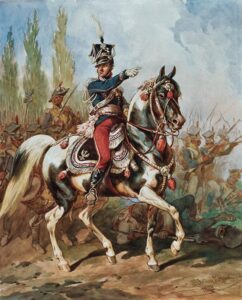
Polish hopes dead and buried
The peace treaties that Bonaparte concluded with Austria and Russia in 1801 included secret clauses in which he pledged not to lend support to Polish independence aspirations. In return, he obtained a sanction of his conquests on the Rhine and in Italy, as well as the promise that Vienna and St Petersburg would cut themselves off from the Bourbons. Napoleon’s biographer, Andrzej Zahorski, wrote that these decisions meant that ‘Polish hopes were dead and buried’. Embittered Legionnaires were sent to the island of San Domingo to quell a rebellion of slaves there. The Polish soldiers were decimated by fever: only three hundred out of six thousand returned to Europe.
The situation changed when, in the autumn of 1806, French troops crossed the Warta and Vistula rivers in pursuit of the fleeing Prussians. ‘Your fate is in your hands,’ said Bonaparte, receiving a delegation of noblemen from Greater Poland in conquered Berlin, thus giving the signal for the restoration of Polish administration. He persuaded General Dąbrowski to issue a proclamation stressing that France would never recognise Poland’s partitions, and quoting the Emperor’s words: ‘If I see that the Poles are worthy of being a nation, they will be one’.
At first, Napoleon only cared about diversion at the enemy’s rear. With time, however, he discovered how invaluable the favour of the locals could be. His army, bleeding in spite of his victories, needed replenishing. More worrying than the Prussians were the bad weather, food shortages, and poor infrastructure. In Eastern Europe, even the main routes were not paved. Bonaparte joked that, during this campaign, he discovered the existence of a fifth element: mud.
Poland was the only country in which the French were not regarded as occupiers. They were greeted enthusiastically, and young people volunteered for the army. However, the Emperor was economical with his promises, realising that raising the flag of Polish independence in public would expose him to permanent conflict with Russia. In Tsar Alexander, he saw a future ally, even if he was now trying to talk him out of an alliance with Prussia. In Warsaw, he stayed at the Royal Castle, but did not want to sleep in the bed of Stanisław August Poniatowski – the ruler who had abdicated. A French-language banner greeted him that read: ‘To raise fallen states, to give them back their names/Is only the work of God or of Napoleon’.

He has given us the Duchy of Warsaw
Despite the war, social life flourished. ‘You are mistaken to think that in this Polish wilderness beautiful women are on my mind,’ the Emperor assured his wife, who had been left at home. He was lying: he had fallen madly for the 20-year-old Maria Walewska. ‘Come to me and all your desires will be fulfilled. Your homeland will be dearer to me if you have mercy on my poor heart,’ he wrote to her from East Prussia, where he intended to beat the Russians. He did not achieve his goal (on the front) until the spring, but the victory was not decisive enough to allow him to think of restoring the Polish-Lithuanian state within its former borders.
Instead, the Duchy of Warsaw was established, comprising one-seventh of the Commonwealth’s pre-partition territory. At its head, Napoleon had placed his ally, the ruler of Saxony, whose grandfather and great-grandfather had sat on the Polish throne. Gdańsk was made a free city (under the French protectorate).
The Sejm had little power, the actual rule being exercised by a resident sent from Paris. For obvious reasons, the Emperor was interested in establishing an efficient administration, reforming education, as well as developing industry and agriculture, but he squeezed the Duchy like a lemon. The Poles had to equip and maintain a strong army, which he exploited according to his thinking. Bonaparte was already famous in Italy for his ‘collecting’ passion. He took paintings by Canaletto from the Royal Castle, Memling’s Last Judgement from Gdańsk and, if time and technical possibilities had permitted, Warsaw’s Sigismund’s Column and Vilnius’ St Ann’s Church, which the Emperor had admired on his way to Moscow, would have been moved to France.
Nevertheless, it was worthwhile for the Poles to persist with Napoleon. In 1809, the Duchy was enlarged by a section of the Austrian partition, including Krakow. Maria birthed a son, Alexander, to the ‘god of war’, who would play an important role in his father’s homeland in the future. French supremacy in Europe was unsustainable in the long run. The humiliated Romanovs, Habsburgs and Hohenzollerns waited for their conqueror to slip up. He himself doubted the good intentions of Tsar Alexander, but asserted that he did not want a new war. ‘I am far from wanting to be the Don Quixote of Poland,’ he had written in a letter to his ally, the King of Württemberg.
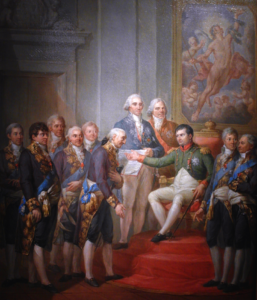
Who to bet on?
In the spring of 1812, Bonaparte announced the start of the ‘Second Polish War’. Austria and Prussia were now his allies and, not wishing to irritate them, he deliberately failed to appear in Warsaw, where he would have had to make some declarations. Meanwhile, the Tsar entered the political auction, promising to unite the territories of the former Polish-Lithuanian state under his sceptre, and grant them wide autonomy. Few were convinced, as Napoleon’s next triumph was widely expected. Following his victory, the enlarged Duchy of Warsaw would likely become a kingdom, remaining the easternmost bastion of French Europe.
There were almost 100,000 Poles in the half-million-strong army marching east. The Emperor crossed the border Niemen river wearing the cap and coat of a Polish lancer. In Vilnius, where Alexander had been partying a few days earlier, he established a provisional government composed of local VIPs. He also allowed a ceremony to be held at the cathedral to renew the Polish-Lithuanian union. The young Adam Mickiewicz remembered the atmosphere of patriotic exultation of the time, and recreated it in his poetic opus magnum Pan Tadeusz (Master Thaddeus).
Bonaparte had hoped to defeat the Russians in two months, but the enemy avoided battle, leaving behind scorched earth, and dragging the Great Army eastwards. Following the capture of Smolensk, Polish generals attempted to persuade the Emperor of the idea of marching on Moscow.
He did not listen and, a year later, was already fighting for survival. The troops of the Duchy of Warsaw took part in battles on German territory, and the Guard regiments remained loyal to Napoleon until the very end, betrayed by their own countrymen. During these dramatic months, the ‘god of war’ became very close to the Poles. He finally understood their desperation. Abdicating, he demanded that the victors guarantee the cavalry soldiers a ‘return to the country in proof of honourable service, and with the retention of the decorations and salaries attached to them’. He took one squadron, under the command of Jan Paweł Jerzmanowski, to Elba and Waterloo. In exile, he was to say that crossing the Vistula was a mistake, adding, however, that ‘the idea of restoring Poland was a noble one’.
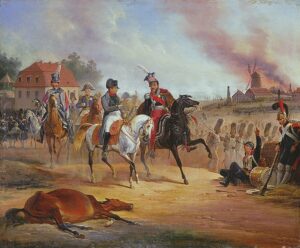
What remains, aside from keepsakes?
The legacy of the turbulent Napoleonic era was, apart from hundreds of thousands of dead and permanently maimed soldiers, the codification of law, respect for science, a course towards modernisation and meritocracy. In strictly material terms, there was little left of the Emperor in Poland. He had ruled over part of the country, and only for six years. Plans to rebuild the centre of Warsaw in the empiric style were abandoned following the calamity of the Great Army.
Instead, the Napoleonic legend survived, with particular reference to the daring charge of the light cavalry at the Somosierra Pass, which opened the Emperor’s road to Madrid. ‘A nation crushed by its neighbours can only rise with a weapon in its hand’: these words addressed to Sułkowski became a signpost for generations of insurgents.
The ‘martyr’ from the Isle of Saint Helena began a new life as the patron of irredentism. The young Józef Piłsudski regarded him as a model commander, and spent hours studying his battle plans. In the 19th century, each patriot had a portrait or statue of the victor at Jena at home. Napoleon left his greatest mark on Polish culture. Mickiewicz’s attitude to the French Emperor was almost idolatrous. Bringing the exile’s ashes to Paris in 1840 was commemorated with beautiful poems by the Romantics Juliusz Słowacki and Zygmunt Krasiński (whose middle name was Napoleon).
A nostalgic Bonapartist is Ignacy Rzecki, the most likeable character in the favourite Polish novel Lalka by Bolesław Prus. The memory of the Little Corporal was kept alive through such literary works as Wacław Gąsiorowski’s widely read series of books about cavalrymen, Stefan Żeromski’s Ashes, and hundreds of works verging on kitsch. The choir shouting ‘Vive l’Empereur!’ also included painters and filmmakers.
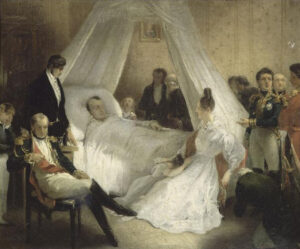
Szymon Askenazy, the founder of the Lwów school of history, began his book written when the fight for independence was finally crowned with success with the following words: ‘Poland kept its heart for Napoleon’.
As if to confirm these words, the centenary of the Emperor’s death was celebrated with incredible pomp in Poland. In April 1921, three months after the signing of the Polish-French treaty of alliance, a huge Napoleonic exhibition opened its doors in Warsaw, where a guard of honour was posted before a showcase featuring ‘relics’ brought from Paris (a sword from Marengo, a hat from Elba, and a cannon ball from Waterloo). On Warecki Square, renamed Napoleon Square, a bust of the Little Corporal appeared. A Napoleonic poetry competition organised by an editorial office in the capital received 256 poems.
Although a hundred more years have passed since then, the glow of the legend has not faded entirely. Polish oak trees, hills, tourist routes, inns, a cream cake, and four villages where Napoleon never set foot, bear the name of the French emperor. The palace in Witaszyce near Jarocin houses the Napoleonic War Museum. In the spirit of the times, it is adjacent to the Star Wars Museum. Would the emperor be happy with this?
Author: Wiesław Chełminiak
Translation: Mikołaj Sekrecki


